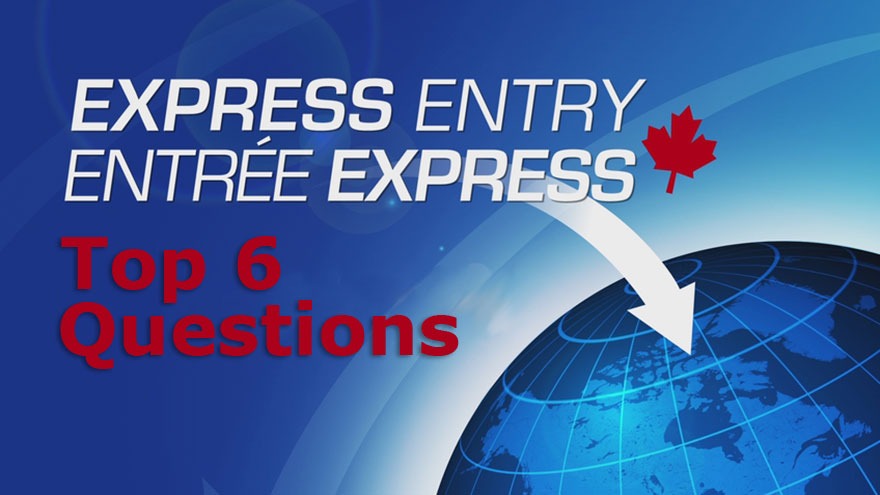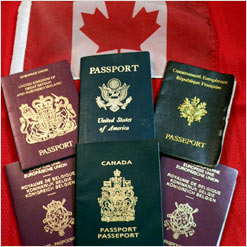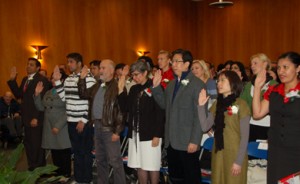
We frequently receive emails, comments to our web site and phone calls about the Express Entry system. Of course, we don’t have time to answer every question, so we have put together the top 6 questions asked about Express Entry:
1 – Is Express Entry replacing Federal Skilled Worker (FSWP) and Canadian Experience Class (CEC)?
No. Express Entry is a new system of choosing Permanent Residents. One must first be qualified for one of the economic programs such as Federal Skilled Worker and Canadian Experience Class in order to be able to get into the Express Entry pool.
2 – What is the minimum score for language under Express Entry?
If you want to qualify for Express Entry, then you must first qualify for one of the economic programs such as Federal Skilled Worker, Canadian Experience Class or Federal Skilled Trades. Your language score must meet the threshold of any of those programs you are trying to qualify for. For more on language score, go here.
3 – Can I qualify under Express Entry without a valid job offer (LMIA) or PNP nomination?
Yes. An LMIA or a PNP nomination will give you enough points to basically guarantee that you will be picked from the Express Entry pool. However, there aren’t nearly enough people with LMIA or PNP nominations, so those without them do have a chance.
On November 6, 2014, Citizenship and Immigration Canada (CIC) announced that Canada will welcome between 260,000 and 285,000 new permanent residents in 2015. Most of them (63%) will come under economic categories. That’s more than 163,000 people. Of those, 47,000 to 51,000 of them will be Federal Skilled Workers who are majority applicants from outside of Canada with no Canadian work experience.
4 – What’s the minimum number of points do I need to qualify?
That’s a question that cannot be answered as there is no minimum threshold. However, it is estimated that those above 400 points will have a decent chance of being selected.
5 – Besides getting a PNP nomination or an LMIA, are there ways for me to improve my total points?
Yes. Some of the ways you could increase your points would be to:
– Increase your language test score
– Even if you don’t need it for the program you are qualifying for, have your credentials assessed
– Make sure your application is properly submitted into the system
– Consult with a professional
6 – Are there occupations that are not qualified under Express Entry?
Any occupation considered to be skilled under the National Occupational Classification will be considered.
Submitting the Express Entry application is the backbone of your full Permanent Residency process. Be sure that you know what you’re getting into as any mistakes made at this point could potentially ruin the application down the road.


